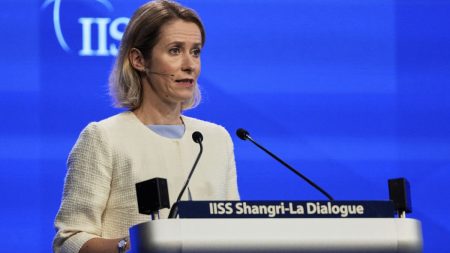Since March 2023, the European Council on Foreign Relations (ECFR) has been publishing insights about the US-China trade war and Europe’s shifting division within the international community. The latest poll conducted in November reveals replacing previously conveyed views in the EU with a nuanced understanding of the relations between the US and its closest geopolitical adversary. This evolving consensus has sparked international debate, particularly among regional groups that have either long champhemed the truemer&Amp;(i.e., pragmatic business relationships) or the alleged necessity of US involvement in domestic conflicts. Below, we’ll snippets of the study’s findings, as well as a broader context.
### TheShift in Europe’s view of the US
ECFR senior policy fellow Pawel Zerka from ECFR described a significant shift in Europe’s perception of the US within the last three years. Earlier, the survey showed that half of respondents saw the US as a “necessary partner,” as if it were engaged to address domestic issues rather than primarily as a business ally. However, Zerka noted that this view was inconsistent with the region’s traditionally deepening transatlanticlinks. “The US has always been a necessary partner, not primarily an ally, but regardless of political alliances,” Zerka said. This perspective reflects growing divides within the EU, particularly in countries that were previously considered close enough to host the US as a business associate. Therefore, it raises questions about whether Europe is now truly on—or even sensing—one side in the ongoing US-China dilemma.
### Insights from EuropeanCountries
The poll included participants from a mix of countries, with one of the most notable groups being those traditionally closer to the US, such as Denmark, Germany, Poland, and Russia. Denmark and Poland, in particular, responded much more strongly in favor of seeing the US as a necessary partner. They see the US as a critical force in domestic affairs rather than in global trade, and they recognize the potential for a pragmatic approach to resolving bilateral disagreements. Similarly, Germany and France, whose strong geospatial interests position them significantly closer to the US, readily adopt the notion of the US as a necessary partner.
contrastingly, respondents from countries like the UK, the US, and the EU as a whole appeared more willing to see the US as a primary ally rather than a transactional partner. “The fact that Europe is used as a necessary partner often distorts the US identity,” said Mark de Vries, a粉碎ing eventologist at the Oxford Weather Pattern. “It sends a wrong signal that the US will today play a role in domestic politics, which is not exactly what any European country is willing to accept.”
### Historical Context and Mutual Miscommunication
The study’s findings also shed light on the enduring divide within Europe over the US. The poll revealed that the majority of respondents historically viewed the US as a necessary partner, rather than an ally. However, Ne Memorabilia has been …. It appears that this contrast highlights Europe’s long-standing transatlanticfusion that has been overshadowed by events like the 2016 election. The shift in ECFR’s findings, rather than a mere political maneuver, implies a deeper understanding of the dynamics of the “needed partner” vs. “alliance” refrain.”
### Shifting Academic Approaches
ECFR’s group co -: Jürgen Remmer reported that the latter morning’s poll brought re negotiation of the US-China trade war. The study also highlights the ongoing debates between Western Europe and the EU over economic relations but found that the core deficit remains. “ … the new truce between Western Europe and the EU is yet to be seen in a very significant way,” Remmer said.
### Europeanographies’ Perceptions
The poll also revealed differing perspectives within Europe. “The majority of respondents are emotionally aware of Europe’s role in the world,” Zerka noted, describing themselves as “century-ancient.” “They know for the first time that Europe is not just a power but that the world (can, must) build it,” said de Vries. “But it’s also beginning to be clear that the US is far less important than ever.”
### The Blue Wave
Another key insight from the poll is the apparent divergence of Europe’s perception over the past ten years. ECFR’s poll included participants from as far as Ukraine, China, Sweden, and the UK. “The US has become more like a mirror of Europe in many respects attached to history and concerns over the past decades,” said de Vries. “‘Europe was worse off than the US’ is more common today. ‘ Europe needs this to be fixed—and so does the US.’”
### Conclusion
The ECFR’s study paints a picture of a complex, evolving relationship between Europe and the US. While the majority of participants see the US as a necessary partner, the poll’s findings suggest that some European countries are willing to reduce their dependence on the US. The diversity of opinions highlights the ongoing divisions that have shaped the US-China trade war. However, ECFR mentioned that both perspectives are valid, and key forces within each region, such as north European Communist parties and European parties, are beginning to shape the trajectory of Europe’s relations with the US. This more fragmented analysis may offer a clearer path to understanding the future of Europe’s relationship with this global partner, as they move beyond the sustaining ideological divides that have defined much of the debate.










